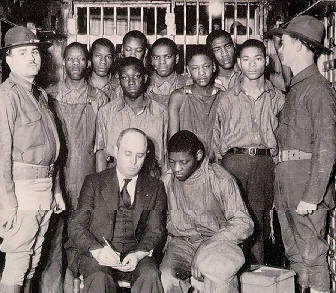Beneath a post on his blog, Bill Vallicella commented on a matter of common interest. I stress that Bill wrote a comment, not a paper for a peer-reviewed journal, and that’s all I’m doing here. I offer the following only as a further, not a last word.
Last Sunday, in responding to one Joe Odegaard, Bill wrote:
While I agree that Christianity makes sense of the world and in particular of the scientific enterprise, and while I myself have argued against materialism/physicalism/naturalism and in favor of Divine Mind as source of the world’s intelligibility, it must be borne in mind that Xianity [Christianity] is a very specific religion with very specific tenets such as Incarnation and Trinity. Why should anyone think that such apparently unintelligible doctrines are necessary for the intelligibility of the natural world? (Emphasis added.—A. G. F.)
The short answer is that appearances can be untrustworthy. Unless it can be shown that those tenets are really, not just apparently, unintelligible, the implicit objection (in the form of a rhetorical question) has no force. I fail to see what special problem the “natural world” allegedly poses.
To know anything about something, we need not know that thing exhaustively (that is, the way God knows it). The Christian does not avail himself of his birthright (Christian theistic) worldview because it confers omniscience on him, but rather because (a) it saves intelligible predication and (b) no competing worldview does. That’s the claim Bill has to defeat.
How is the Incarnation or the Trinity unintelligible, even apparently?
The equal ultimacy of the one and the many in the Triune Godhead saves predication from the consequences of monism and pluralism.
It’s also unclear what problem someone who affirms exnihilation finds in a divine person’s taking the form of a divine-image bearer. Some atheists have claimed, without justification, that exnihilation is “unintelligible” but they do so because they’ve absolutized the created order instead of relativizing it to its creator, who alone is absolute. Bill affirms exnihilation without exhaustively grasping it conceptually. He can do likewise for the Trinity and the Incarnation.
The Christian worldview, expressed on the pages of the Bible, is a revelatory “package deal,” if you will, not a buffet of optional metaphysical theses. The organic connectedness (within the divine decree) of creation, trinity, and incarnation—even the so-called “contingencies of history,” e.g., Joshua’s impaling the King of Ai on a pole after slaughtering all of his subjects (Joshua 8)—await clarification in God’s good time, if He sees fit to provide it, but are put before us for our assent today.


 “You know, when the [United] States already had nuclear weapons and the Soviet Union was only building them, we got a significant amount of information through Soviet foreign intelligence channels . . . . They were carrying the information away not on microfilm but literally in suitcases. Suitcases!” Vladimir Putin, 2012
“You know, when the [United] States already had nuclear weapons and the Soviet Union was only building them, we got a significant amount of information through Soviet foreign intelligence channels . . . . They were carrying the information away not on microfilm but literally in suitcases. Suitcases!” Vladimir Putin, 2012 “The states will determine by vote, or legislation, or perhaps both, and whatever they decide must be the law of the land—in this case [abortion], the law of the state. Many states will be different. Many states will have a different number of weeks … at the end of the day it is all about the will of the people.” Donald Trump,
“The states will determine by vote, or legislation, or perhaps both, and whatever they decide must be the law of the land—in this case [abortion], the law of the state. Many states will be different. Many states will have a different number of weeks … at the end of the day it is all about the will of the people.” Donald Trump, 




 In a
In a